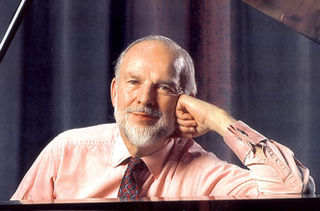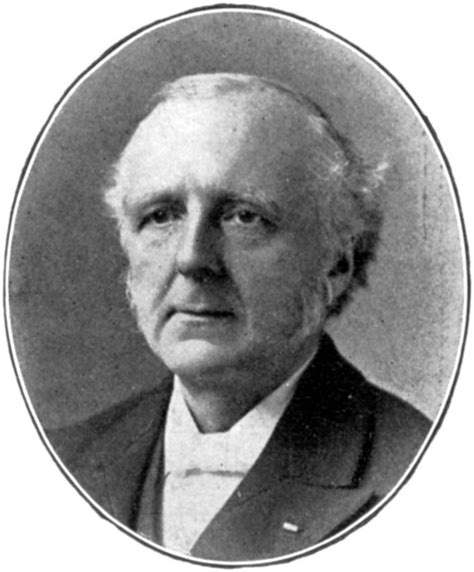A Quote by Edwin Hubbel Chapin
When I contrast the loving Jesus, comprehending all things in his ample and tender charity, with those who profess to bear his name, marking their zeal by what they do not love, it seems to me as though men, like the witches of old, had read the Bible backward, and had taken incantations out of it for evil, rather than inspiration for good.
Related Quotes
It seems to me that Mr. Sculley understood the very nucleus of existence, that he had kept his young eyes and young heart even though his body had grown old. He saw straight through to the cosmic order of things, and he knew that life is not held only in flesh and bone, but also in those objects - a good, faithful pair of shoes; a reliable car; a pen that always works; a bike that has taken you many a mile.
Though I know that he had something to do with the attack simulation, and with all those deaths, I find it difficult to pair those actions with the man I see in front of me. I wonder if this is how it is with all evil men, that to someone, they look just like good men, talk like good men, are just as likeable as good men.
I once read in a Bible commentary that the word "Christian" means "little Christs." What an honor to share Christ's name! We can be bold to call ourselves Christians and bear the stamp of his character and reputation. When people find out the you are a Christian, they should already have an idea of who you are and what you are like simply because you bear such a precious name.
Inspiration can show up almost any time, though I have yet to see anyone scratching out melodic ideas on a restaurant napkin as legend would have us believe. I think inspiration comes from concentration, and early on I learned about Mark Twain's habit of leaving for his study after breakfast and not reappearing until the end of the day, ready to read to his family what he had just written. That set a good example for me, although I didn't copy his habit of taking twelve cigars along.
I really wished he hadn't made me hate to read the Bible. Having it shoved down my throat all my life had made me bitter toward reading it. I believed it, but my dad had used it to his benefit too many times and ignored the parts in there that would point out his wrongs. Like judging Beau without even knowing him. That was in the Bible too.
Goodness was more difficult than evil. Evil men knew that more than good men. That's why they became evil. That's why it stuck with them. Evil was for those who could never reach the truth. It was a mask for stupidity and lack of love. Even if people laughed at the notion of goodness, if they found it sentimental, or nostalgic, it didn't matter -- it was none of those things, he said, and it had to be fought for.
I remember [Joe] Lovano came around to me at that time [of Monk competition]. And I had taken some lessons with Joe and I had seen Joe on the scene. He had always been so great to me, such and inspiration and so kind. One lesson that I had with Joe was just amazing. I'm just such a fan and an admirer of his on every level. He was like, "Don't worry... you're just out here. You just do what you're doing. Don't worry if it doesn't make you a household name or anything."
Men and women make their own beauty or their own ugliness. Sir Edward Bulwer Lytton speaks in one of his novels of a man "who was uglier than he had any business to be;" and, if we could but read it, every human being carries his life in his face, and is good-looking or the reverse as that life has been good or evil. On our features the fine chisels of thought and emotion are eternally at work.
Holiness provokes hatred. The greater the holiness, the greater the human hostility toward it. It seems insane. No man was ever more loving than Jesus Christ. Yet even His love made people angry. His love was a perfect love, a transcendent and holy love, but HIs very love brought trauma to people. This kind of love is so majestic we can't stand it.
Jesus Christ has bought us with His blood, but, alas, He has not had His money's worth! He paid for ALL, and He has had but a fragment of our energy, time and earnings. By an act of consecration, let us ask Him to forgive the robbery of the past, and let us profess our desire to be henceforth utterly and only for Him- His slaves, owning no master other than Himself.
The greatest encouragement throughout the Bible is God's love for His lost race and the willingness of Christ, the eternal Son, to show forth that love in God's plan of redemption. The love of Jesus is so inclusive that it knows no boundaries. At the point where we stop caring and loving, Jesus is still there loving and caring
How much reverence has a noble man for his enemies!--and such reverence is a bridge to love.--For he desires his enemy for himself, as his mark of distinction; he can endure no other enemy than one in whom there is nothing to despise and very much to honor! In contrast to this, picture "the enemy" as the man of ressentiment conceives him--and here precisely is his deed, his creation: he has conceived "the evil enemy," "the Evil One," and this in fact is his basic concept, from which he then evolves, as an afterthought and pendant, a "good one"--himself!
Acts 10:38 says, “See how God anointed Jesus of Nazareth who went about doing good.” He just got up every day and did good. Everywhere he went, even though he had a purpose and he was headed somewhere, he let himself be interrupted by the needs of people. So often we study the steps of Jesus. Maybe we need to study the stops of Jesus. The things that he stopped for, the things that interrupted his plan, where he would alter his plan and help somebody here and there.





































